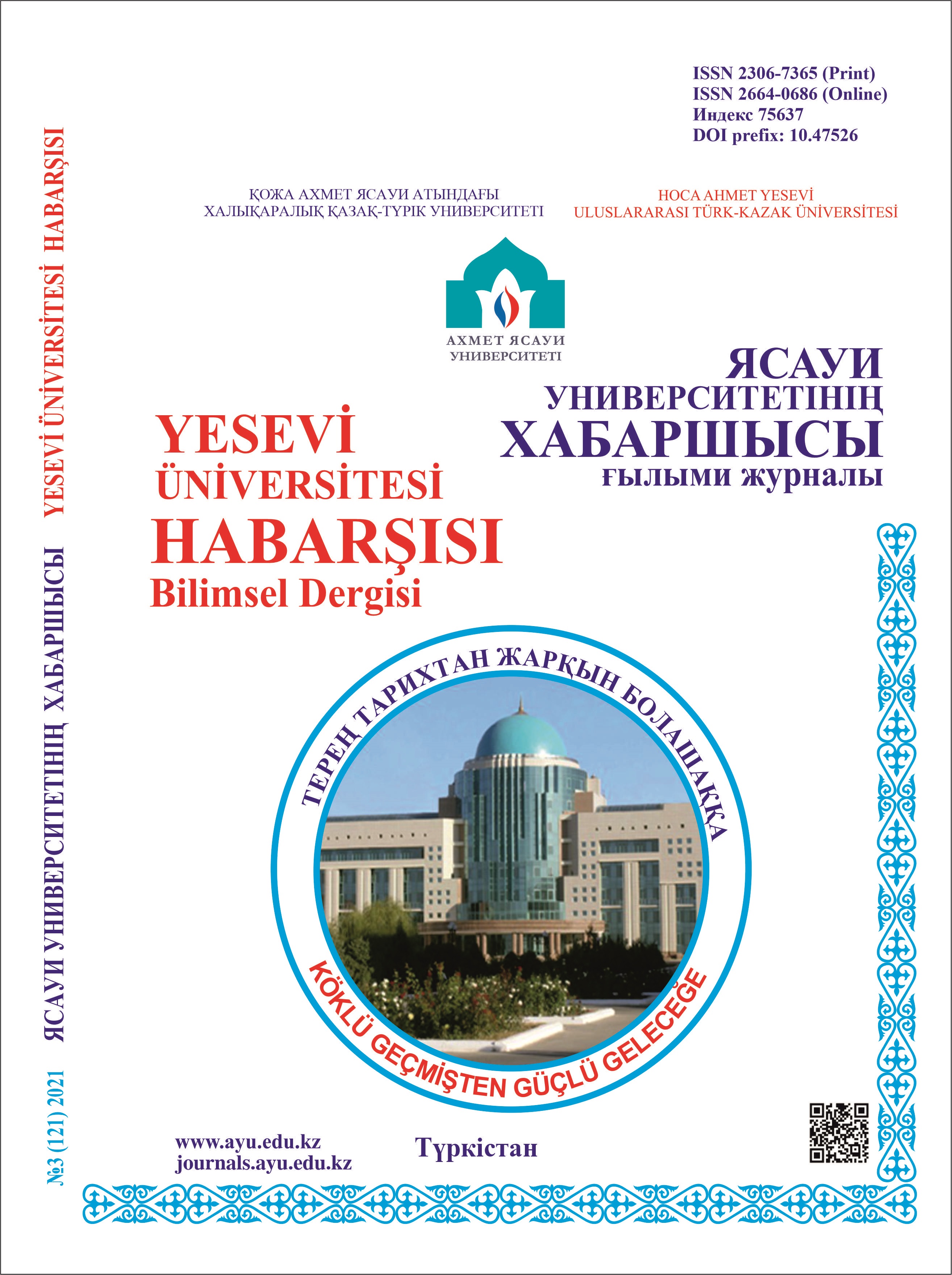Kazakça'daki «Korkut Ata» Kitabındaki İnsanlara Göre Paremilerin Korunması Ve Geliştirilmesi
Anahtar Kelimeler:
paremia, proverb, Middle Turkic language, book of «Korkyt Ata», Oguz group, Kipchak group, Kazakh languageÖzet
In this article, authors seek to determine the connection of historical paroemias with proverbs used in the modern Kazakh language, based on the study of paroemias in the book of «Korkyt Ata» in a comparative historical aspect.
Paremias are special structures in the language of a certain nation. They perform a cumulative function from father to child, establishing the ideological features and values of the nation in the world linguistic image. In the historical process, the paremias created for one reason or another under certain conditions and worked out by the consumers of the language, develop lexically, phonetically, grammatically, pragmatically, preserving their original or basic pragmatics, occupy a place in the synchronous vocabulary and implement the communication requests of consumers. It is not known when exactly they appeared and who was the real author. However, the marking of historical paremias on well-known written monuments opens up new opportunities for comparative historical research. It also helps to identify the features of the development of historical paremia at different stages. The paremias in the book «Korkyt ata» attract with their variety of aspects, among which there are several: 1. The Kazakh people have preserved proverbs, oratorical proverbs, winged expressions, reserved legends «Korkyt Atadan kalgan» (left from Korkyt Ata) or «Korkyt aitypty» (Korkyt said). 2. These paremias are also found among other Turkic peoples, so there is a problem of determining the general base of paremias. 3. A certain part of the proverbs of the Kazakh people is recorded in the book «Korkyt ata». That is, historical paroemias in the book «Korkyt Ata» have been transformed and developed for more than 500 years, forming a certain construction in the Kazakh language of the Kipchak group. Consequently, proverbs and sayings tend to vividly express the cultural essence of a nation filtered from the depths of history.

